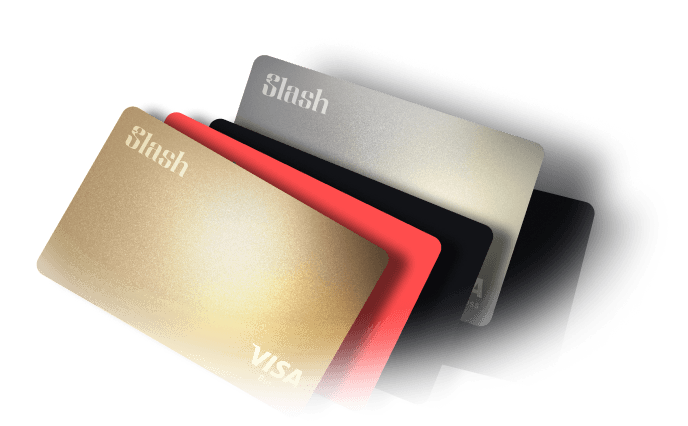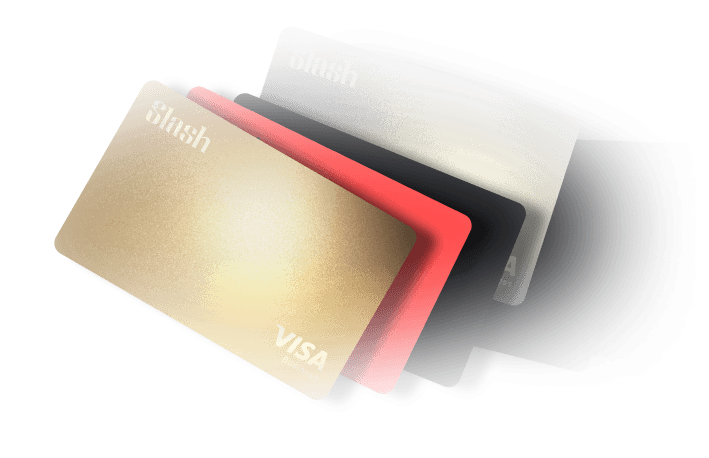
How to Manage Employee Expenses Using Prepaid Business Cards
Here’s a scenario: your small business is too new to qualify for a traditional business credit card, your team is growing fast, and you need a smarter way to manage company spending. While some entrepreneurs may rely on their business checking account and debit cards, others may want the advanced expense management tools, reporting capabilities, and flexible spending that come with access to a business card.
Prepaid business cards can be overlooked, yet they offer more versatility than cash, checks, and even business debit cards for some companies. In recent years, prepaid cards have emerged as a dynamic solution for small businesses, startups, and large corporations that want greater control of their business expenses and cash. A prepaid business card functions as a specialized business banking tool, allowing owners to fund expenses in advance, set spending limits for employees, and monitor purchases in real time.
In this guide, we’ll explain everything you need to know about prepaid business cards: how they work, who should use them, their benefits and drawbacks, and which options rank among the best prepaid business cards in 2025. We’ll also show how Slash’s corporate charge card can be a more powerful alternative corporate card for your business than prepaid cards.1 With Slash, you access the flexibility of a corporate charge card without a business credit check, giving you access to industry-leading cashback rewards, spend controls, and an integrated financial dashboard designed to help your business grow.
What is a prepaid business card?
A prepaid business card is a type of payment card that draws from funds preloaded onto the card by an account administrator. Prepaid business cards are sometimes called p-cards, for short, or “prepaid business credit cards;” however, this term can be technically misleading, since prepaid business cards do not extend a revolving line of credit. Functionally, they operate more like prepaid debit cards, since the card’s balance is replenished by a company’s prepaid balance or linked business account.
Prepaid business cards are becoming an increasingly popular tool in modern business banking. Issuers are expanding their capabilities beyond simple stored-value cards, introducing features once reserved for more capable credit and charge cards, such as built-in expense management tools and integrated data dashboards.
Below is a more detailed look at the uses, benefits, and functions of a prepaid card program:
- Low business credit risk: Prepaid cards can serve high-risk or early-stage businesses that don’t yet qualify for traditional business credit cards. Prepaid cards do not require a business credit score to apply, and they do not report to credit bureaus. Instead of a credit limit, spending is limited by the prepaid card’s available balance. This can be a benefit for owners trying to minimize misuse or exposure to business credit risks.
- Expense management tools: Depending on the provider of your business checking account, your business may not have access to automated expense management tools, virtual cards, or real-time spend analytics. Looking into a prepaid card or a business credit card designed to help small businesses grow, like Slash, can give you greater control over your employees’ spending, reconciliation, and financial reporting.
- Per-diem expense controls: Per diem expenses refer to costs from day-to-day employee transactions that use petty cash like lunch stipends, lodging, fuel, and more. By using a prepaid card, managers and owners can easily enforce more responsible financial habits by limiting employee spending or allocating specific amounts of funding for one-time purchases.
- ATM functionality: Most prepaid cards can be used at ATMs, since the funds loaded onto the card are tied to a business checking account. However, if your prepaid card issuer doesn’t operate within a specific ATM network, you could be subject to withdrawal fees.
- Building a financial history: While prepaid business cards don’t contribute to your business credit history, they can be used to record your financial history through previous statements and automated expense reporting. These documents can be especially useful when applying for a business credit card that does not require a traditional credit check, like the Slash Platinum Card.
How do prepaid business cards work?
At the point of sale, a prepaid business card functions similarly to other types of payment cards, such as debit or business credit cards. We’ve outlined a simplified overview of the payment process below:
- Purchase initiation: The cardholder presents the prepaid business card at a point of sale, either in person or online. The terminal sends the transaction details, such as the amount, merchant code, and card number, through the payment network for authorization.
- Compliance check: Before the payment is approved, the prepaid card issuer’s system verifies the transaction by checking company spending rules set by the account administrator. If the purchase complies with limits and merchant restrictions, it proceeds; if not, it automatically declines at the point of sale.
- Payment validation and fund transfer: The card issuer then checks if sufficient funds are available in the prepaid balance and places an authorization hold for the purchase amount, moving the transaction into the settlement stage. After settlement, the funds move from the issuer’s prepaid account to the merchant’s acquiring bank via the payment network.
- Payment data capture and input: After the transaction is completed, the issuer records details such as the vendor name, amount, date, and merchant category to include in statements and present to the cardholder. Some issuers also require manual receipt uploads for compliance or recordkeeping. For business cards with built-in expense software like Slash, this data is automatically categorized and added to an analytics dashboard.
Best prepaid business card options in 2025
Below is an overview of the best prepaid cards available to businesses today. Our picks were based on the prepaid cards’ access to expense management tools, customizable payment controls and spend analytics:
PEX Prepaid Expense Visa®
The PEX Prepaid Expense Visa® offers spend controls, automated approvals, and receipt uploads through its platform. It integrates with common accounting systems but charges $75 per month for the Core plan, which includes up to 20 cards. Features are adequate for expense management needs, though pricing can add up for small teams.
Pleo Prepaid Business Card
The Pleo Prepaid Business Card provides configurable spending rules, analytics, and receipt management. Account balances are limited to $500,000. The base plan starts at $39 per month for three users, with each extra user costing $11 monthly. It offers a clean interface but a relatively high entry price compared to other prepaid options.
DashTM Prepaid Mastercard®
The Dash™ Prepaid Mastercard® offers tools like spend category customization, auto-reloading, and export options for accounting software. Unlike some competitors, Dash does not charge monthly software or per-card fees. Account balances are capped at $100,000 in total and $10,000 per individual card. While it’s designed primarily for business purchases rather than payroll, it still provides flexibility for a wide range of corporate expenses. The card also includes a 3% foreign transaction fee and a $10.99 charge for paper statements, though online statements are free.
U.S. Bank Focus Prepaid Pay Card for Business
The U.S. Bank Focus Card is a prepaid business debit card designed to help businesses manage their employee payroll. It has no annual fees and allows administrators to distribute and manage funds with a companion app. However, unlike some competitors, the business card does not automate expense reporting or provide insights into spending.
Best alternative: Slash Visa® Platinum Card
The Slash Visa® Platinum Card offers the same accessibility and spend management convenience you’d expect from a prepaid business card. However, unlike prepaid cards, which draw directly from company funds, charge cards extend short-term credit that’s repaid in full each billing cycle.
Slash offers physical and virtual cards with automated compliance workflows, real-time payment insights, integration with QuickBooks and Xero, and powerful spend controls. Our streamlined application doesn’t require a business credit check, making it a great option for new and growing businesses. And, the Slash Platinum Card earns up to 2% cashback, helps build your business credit history, and provides access to an industry-leading financial dashboard with multi-entity support, free ACH transfers, and more.
Pros and cons of using business prepaid cards
While prepaid business cards can be a great alternative to using cash, checks, or debit cards, they aren’t without flaws. Below we highlight some of the benefits and particular downsides associated with prepaid cards:
Pros
- Prepaid business cards give managers and owners greater control over employee spending through preset limits and adjustable card balances.
- Because these cards aren’t tied to a business credit score, misuse generally carries less long-term risk. Overspending might trigger an overdraft or declined transaction, but it won’t affect your company’s credit score.
- Many prepaid programs include financial dashboards that offer spending insights and category tracking. A Slash corporate charge card provides the same visibility while also earning industry-leading cash-back rewards.
Cons
- Prepaid business cards do not build business credit. They can simplify expense management, but they won’t help your company qualify for future credit lines, leases, or loans. A Slash corporate charge card, by contrast, helps establish credit history and offers a fast application process with no business credit check required.
- Many prepaid cards have high annual fees or come with hidden fees, such as foreign transaction fees or paper-statement charges.
- Since prepaid card issuers often operate with smaller capital reserves, they typically restrict cardholders down to a low maximum account balance.
- Reloading funds can be inconvenient. If a card runs out of money when an employee needs it, the delay in replenishment can disrupt operations and lead to avoidable stress.
Alternatives to prepaid business cards
Although prepaid business cards can be a good option for managing employee spending, they come with some restrictions that may limit their functionality for your business. Below, we offer a general overview of the types of payment cards to help you decide which card may be right for you:
Business charge cards
Slash offers a corporate charge card that provides access to a flexible line of credit, with full repayment of the statement balance required each billing cycle. Although this structure differs from traditional revolving credit, the Slash Platinum Card can be an accessible option for young startups that offer advanced spend controls, including unlimited virtual cards with personalized spend limits and customizable restrictions. And, unlike prepaid options, Slash corporate cards can earn up to 2% cash back on every purchase, integrate with QuickBooks and Xero for simplified accounting, and provide real-time insights and analytics about your spending for better visibility into your cash flow and expenses.
Business credit cards
A traditional corporate credit card is far more common than a prepaid business card. These cards help build business credit, offer rewards such as cash back and travel perks, and provide access to a revolving line of credit that allows balances to carry over month to month. However, they can be difficult to obtain for newer businesses without an established credit history.
Business debit cards
Business debit cards draw funds directly from a company’s checking account at the time of purchase. Like prepaid cards, they may offer features such as spending controls and the ability to issue multiple employee cards. The key difference is that debit cards don’t require preloading funds. Purchases are made seamlessly from the account balance, providing more immediate access to available cash.
Why consider Slash over a prepaid business card
If your business wants a better tool to manage employee spending without being limited by your business credit score, consider banking with Slash.
Our streamlined application process requires only a government-issued ID, recent bank statements, basic business details, and proof of operating activity. There’s no personal guarantee, no Social Security Number, and no credit check required. Instead, we evaluate your business’s real financial profile, focusing on performance and cash flow rather than past credit history. Click for more information about Slash’s application requirements.
Prepaid card programs can be useful for keeping spending in check, but they often stop there. Slash goes a step further, helping you scale your business with smarter, more flexible financial management. Our corporate charge card gives you the control of a prepaid program without the limits. There’s no need to reload funds or miss out on rewards; instead, we offer flexible access to credit, advanced spend controls, and up to 2% cash back on every purchase.
Don’t settle for a card with limitations. Start building your financial future with Slash.
Apply in less than 10 minutes for a Slash card today
Join the 3,000+ businesses already using Slash.
Watch the Post:
Frequently Asked Questions
What is the difference between a prepaid business card and a corporate charge card?
Prepaid business cards draw from funds you load onto the card in advance, similar to a debit card. Corporate charge cards, like the Slash Visa Platinum Card, extend short-term credit that must be repaid in full each billing cycle. Charge cards typically offer more features like cashback rewards, higher spending flexibility, and the ability to build business credit history, while prepaid cards are limited to the preloaded balance.
Do prepaid business cards help build business credit?
No, prepaid business cards do not help build business credit because they are not tied to a credit account. Since you are spending preloaded funds rather than borrowing, the activity is not reported to business credit bureaus. If building credit history is important for your business, a corporate charge card or business credit card would be a better option.
Can I get a business card without a credit check?
Yes, prepaid business cards typically do not require a credit check since you are using preloaded funds. Some corporate charge cards, like Slash, also offer streamlined applications that evaluate your business based on cash flow and financial performance rather than traditional credit scores, making them accessible to startups and newer businesses.
What are the main drawbacks of prepaid business cards?
The main drawbacks include: they do not build business credit, often have lower maximum account balances, may charge monthly fees or hidden fees like foreign transaction charges, and require manually reloading funds which can disrupt operations if a card runs out at a critical time. Additionally, prepaid cards typically do not offer rewards like cashback on purchases.











